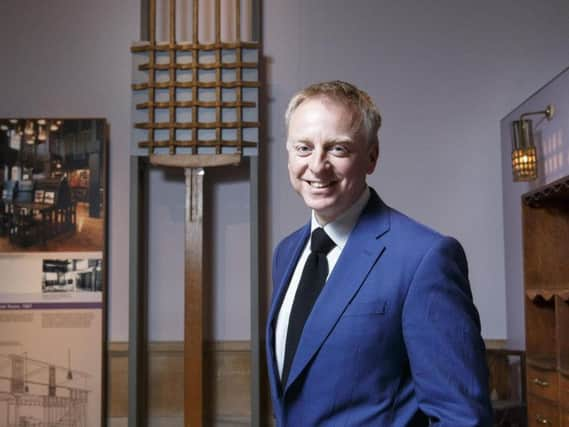Edinburgh International Book Festival: Erika Fatland, Philip Long, Joanna Norman & Tom Holland


Whatever else about Turkmenistan, said Norwegian writer Erika Fatland, its visitors’ phrasebook doesn’t exactly inspire confidence.
Not, as she pointed out, that it gets many of them: North Korea, apparently, gets more. But the ones who do make it to the capital, Ashgabat, find huge empty boulevards, an enormous but deserted national museum, and more marble and fountains than any city in the world. “Most people haven’t heard of Turkmenistan, but the people at the Guinness Book of Records certainly have,” she said.
Advertisement
Hide AdThe five “stans” – Turkmenistan, Uzbekistan, Tajikistan, Kyrgyzistan and Kazakhstan – fascinate her, and it’s easy to see why.
As far as I know, Scottish design has yet to influence Central Asia, but after listening to V&A Dundee director Philip Long and V&A Research Institute director Joanna Norman this would seem to be the exception rather than the rule. Cultural nationalists might wonder why Kengo Kuma’s iconic building doesn’t house more specifically Scottish work – indeed there was a question from the floor to this effect – but as their talk made clear, national boundaries in design are every bit as fluid as they were in the Soviet maps of 1930s Central Asia.
Yet at the same time, surely the most impressive thing about V&A Dundee is how it allows us to see, often for the first time, the work of Scots designers, artists and craftsmen who are treasured abroad but unknown here – people like “America’s Chippendale”, Aberdeen-born Philadelphian cabinet maker Thomas Affleck. There were many more similar examples, so many indeed as to make it all the odder that Long and Norman’s book, The Story of Scottish Design, is the first single-volume one on the subject.
No-one writes or talks about medieval history with as much panache as Holland, and all the signs are that his new book, launched yesterday, is no different, as it gives a whole chapter to the Beatles (essentially a Christian message in a secular age: All You Need is Love, Imagine etc) rather than Vatican Two (“because it had less effect on society”). In an age when our bedrock Christian belief is vanishing, he said, we increasingly fear that that the weak are being ignored and equality threatened.
These were, of course, two tenets of Nazism, so it’s as if we have a subconscious fear that a secular age might mean a Nazi one, hence our readiness to use accusations of Nazism in social media debate. Too broad-brush or painfully accurate? You decide.